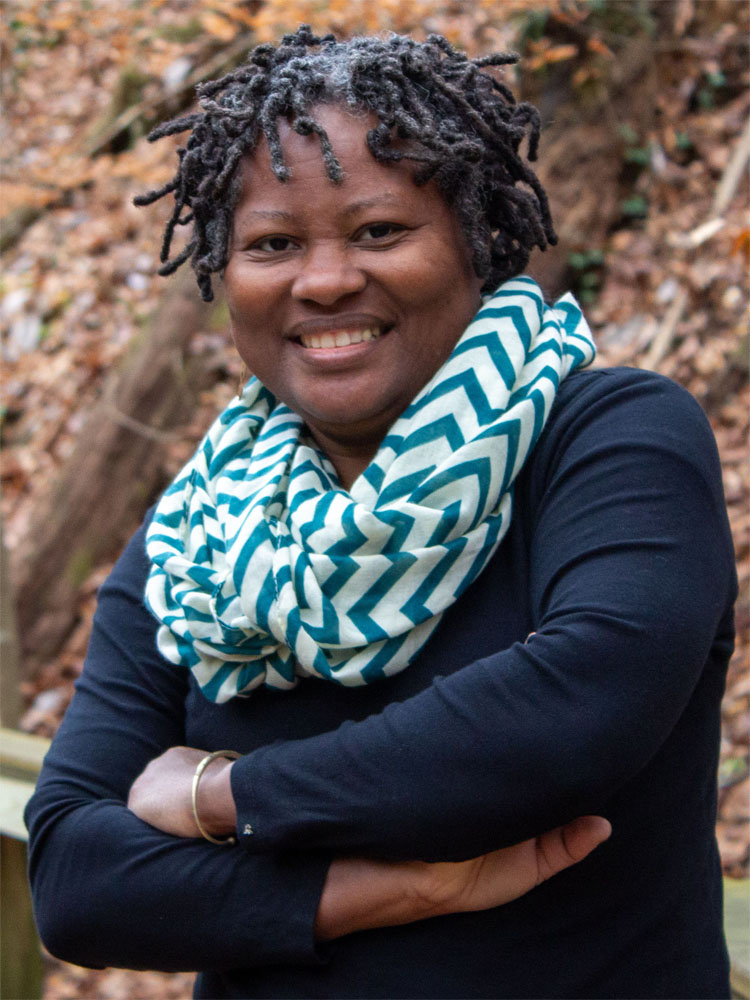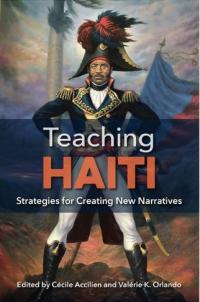Cécile Accilien

School of Languages, Literatures, and Cultures
Professor, French & Francophone Studies, French
Affiliate Faculty, The Harriet Tubman Department of Women, Gender, and Sexuality Studies
Affiliate Faculty, Latin American and Caribbean Studies Center
Affiliate Faculty, American Studies
3106D Jiménez Hall
Get Directions
Education
Ph.D., French Studies, Tulane University
M.A., Francophone Studies, University of Louisiana, Lafayette
Research Expertise
Afro-Caribbean Studies
Film Studies and Cultural Studies
French and Francophone Studies
Haitian Studies
Cécile Accilien is Professor of French and Francophone Studies in the School of Language, Literatures and Cultures at the University of Maryland (College Park). Her area of studies are Francophone African and Caribbean Literatures and Cultures, Gender & Sexuality Studies and Film & Media Studies. She has published in different journals including Forum for Inter-American Research, The Southern Quarterly: A Journal of the Arts in the South, Women, Gender & Families of Color, Revue française, and the Journal of Haitian Studies. She is the co-editor (with Valerie Orlando) of Teaching Haiti: Strategies for Creating New Narratives; co-author (with Krishauna Hines Gaither) of The Antiracism World Language Classroom and co-author (with Jowel Laguerre) of English-Haitian Creole Phrasebook. She recently published Bay lodyans: Haitian Popular Film Culture with SUNY Press. Since 2019 she has been serving as chair of the editorial board for Women, Gender and Families of Color. She serves as the 2024 president of the Haitian Studies Association. Prior to that she served as an HSA board member from 2019-2022. She has written for Truthout and Latin American Commentator.
Courses
- FREN699D Seminar; Haiti: Literature, Culture, and Identity
Publications
Bay Lodyans Haitian Popular Film Culture
Considers how popular Haitian films not only provide entertainment but also help audiences in Haiti and the diaspora think through daily challenges.
Author/Lead: Cécile AccilienIn Haitian Creole, bay lodyans means to tell stories to an audience, and more generally, to entertain. This book is the first to analyze popular contemporary Haitian films, looking especially at how they respond to the needs and desires of Haitian audiences in and beyond Haiti. Produced between 2000 and 2018 and largely shot with digital cameras and sometimes cellphones, these films focus on the complexities of community, nostalgia, belonging, identity, and the emotional landscapes of exile and diaspora. They reflect sociopolitical and cultural issues related to family, language, im/migration, religion, gender, sexuality, and economic hardship. Using storytelling and other less traditionally "academic" techniques, Cécile Accilien advances Haitian epistemological frameworks. Bay Lodyans integrates terms and concepts from Haitian culture, such as jerans and kafou (derived from the French words for "to manage" and "crossroads," respectively) and includes interviews with Haitian filmmakers, actors, and scholars in order to challenge the dominance of Western theoretical approaches and perspectives.
The Antiracist World Language Classroom
How can you incorporate antiracist practices into specific subject areas? This essential book finally answers that question and offers a clear roadmap for introducing antiracism into the world language classroom.
Author/Lead: Cécile AccilienNon-ARHU Contributor(s): Krishauna Hines-Gaither
Drawing on foundational and cutting-edge knowledge of antiracism, authors Hines-Gaither and Accilien address the following questions: what does antiracism look like in the world language classroom; why is it vital to implement antiracist practices relevant to your classroom or school; and how can you enact antiracist pedagogies and practices that enrich and benefit your classroom or school?
Aligned with the American Council on the Teaching of Foreign Languages standards, the book is filled with hands-on antiracist activities, strategies, and lesson plans. The book covers all necessary topics, including designing antiracist units of study, teaching across proficiency levels, advocacy and collaboration in the community, and how to facilitate self- reflection to become an active antiracist educator. The tools, prompts, and resources in this book are essential for any world language teacher, department chair, or school leader.
KREYÒL MODÈN: Modern Creole Language
Learn and improve your Haitian-Creole Skills effectively. Kreyòl Modèn is a comprehensive guide to teach and learn the Haitian-Creole language.
Contributor(s): Cécile AccilienNon-ARHU Contributor(s): Dr. Jowel C. Laguerre Ph.D. Ms. Mickel-Ange Bernier
Learn and improve your Haitian-Creole Skills effectively. Kreyòl Modèn is a comprehensive guide to teach and learn the Haitian-Creole language.
Teaching Haiti: Strategies for Creating New Narratives
An important and compelling volume that adds to the scholarship on Haiti
Author/Lead: Valérie K. Orlando, Cécile AccilienNon-ARHU Contributor(s): Jessica Adams, Alessandra Benedicty-Kokken, Anne M. François, Régine Michelle Jean-Charles, Elizabeth Langley, Agnès Peysson-Zeiss, John D. Ribó, Joubert Satyre, Darren Staloff, Bonnie Thomas, Don E. Walicek, Sophie Watt

This volume is the first to focus on teaching about Haiti’s complex history and culture from a multidisciplinary perspective. Making broad connections between Haiti and the rest of the Caribbean, contributors provide pedagogical guidance on how to approach the country from different lenses in course curricula. They offer practical suggestions, theories on a wide variety of texts, examples of syllabi, and classroom experiences. Teaching Haiti dispels stereotypes associating Haiti with disaster, poverty, and negative ideas of Vodou, going beyond the simplistic neocolonial, imperialist, and racist descriptions often found in literary and historical accounts. Instructors in diverse subject areas discuss ways of reshaping old narratives through women’s and gender studies, poetry, theater, art, religion, language, politics, history, and popular culture, and they advocate for including Haiti in American and Latin American studies courses.
Read More about Teaching Haiti: Strategies for Creating New Narratives


